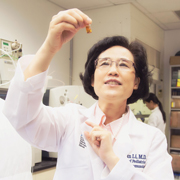
Xiu Min Li
2016
Dr. Li obtained her MD degree in Henan School of Chinese Medicine and a Master’s degree in Clinical Pediatric Immunology from The Graduate School of China Academy of Chinese Medical Sciences, where she was trained in integrative Western and Traditional Chinese Medicine. She was Visiting Scientist at Stanford before completing a postdoctoral fellowship in Clinical Immunology at the Johns Hopkins School of Medicine, Asthma and Allergy Center, and was appointed instructor. Dr. Li was recruited to the Division of Pediatric Allergy and Immunology at Mount Sinai when the division was established in 1997. In the past 17 years, she has investigated novel therapies for asthma and food allergy combining expertise in allergy and immunology, molecular biology and Chinese herbal medicine. She is sponsor of US-FDA approved clinical studies of investigational new botanical drugs. In addition to the clinical studies, she has established immunobiology and botanical chemistry laboratories. Her research has resulted in nearly 100 publications. She has given 2009 Gail G. Shapiro Memorial Lecture at the American Academy of Allergy, Asthma and Immunology. Dr. Li also served as vice Chair and then Chair of the American Academy of Allergy Asthma and Immunology (AAAAI), Complementary and Alternative Medicine Practices in Allergy Committee. Dr. Li also served as Chair of the First East-West Scientific Conference on Allergy & Traditional Medicine. Her work is featured in Henry Ehrlich’s book “Food Allergies: Traditional Chinese Medicine, Western Science, and the Search for a Cure”.
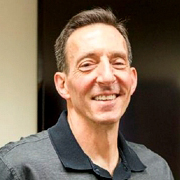
Albert Di Rienzo
2014
Albert J. Di Rienzo is Founder and CEO of Radicle Innovation LLC. Previously he was President of RedSky focused on health related breakthroughs and the Founder and CEO of Blue Highway, spun-out of Welch Allyn. Albert’s 30-year career also includes appointments with Phillips Medical Systems, Siemens Medical Systems, Honeywell Aerospace and General Dynamics. He’s been recognized twice as the Medical Device Industry’s Most Valuable Thought Leader by Frost & Sullivan (2006, 2011), and as Technologist of the Year by the Technology Alliance of Central New York (2009). Connecting his expertise to community involvement, Albert served on the National Bio-defense Science Board for both the Bush and Obama Administrations. He received a certificate of appreciation from the US Department of Health & Human Services for his dedication in developing recommendations concerning current and future threats posed by naturally occurring and man-made chemical, biological, radiological and nuclear threats. Additionally, Albert has spoken to the U.S. Senate Manufacturing Caucus concerning the impact of research and development on manufacturing innovation; participated in a U.S./Northern Ireland economic summit upon request of the Secretary of State; and advised the New York State Economic Task Force. Albert holds a Computer Science degree from Old Dominion University. He serves as an Advisory Board Member to numerous organizations including Columbia University Center for Advanced Information Management, Cornell University Biomedical Engineering, Frost & Sullivan, i4cInnovations, University of Buffalo Center for Advanced Biomedical & Bioengineering, and University City Science Center in Philadelphia (consisting of 22 universities in DE, NJ & PA) as well as a Board Member to Abram Scientific.
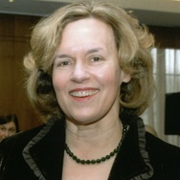
Lorraine Gudas
2013
Dr. Gudas is Chairman and Revlon Pharmaceutical Professor of Pharmacology and Toxicology of the Pharmacology Department. She is a member of the American society for Pharmacology and Experimental Therapeutics, the major organization of scientists doing research in pharmacology. She recently finished a term as an elected member of the Board of Directors of the American Association of Cancer Research, the largest organization of cancer researchers in the United States. Dr. Gudas also recently finished a term as chair of the Board of Scientific Counselors of the National Institute of Diabetes and Digestive and Kidney Disorders. She is a member of the external advisory boards of three Cancer Centers: The Vermont Cancer Center, The Lineberger Cancer Center of U.N.C. Chapel Hill, and the University of Maryland Greenebaum Cancer Center. Of note, in 1999, she received the 2nd Annual “Woman in Cancer Research” award from the American Association of Cancer Research. She is on the Editorial Boards of a number of journals, including Molecular Cancer Therapeutics, Molecular and Cellular Biology, Molecular Cancer Research and the Journal of Biomedical Chemistry. She has had a long-standing research interest in vitamin A and its derivatives and metabolites, a group of compounds called retinoids. She and her laboratory members have studied the pharmacology and molecular actions of retinoids with respect to cancer treatment and cancer prevention for approximately twenty years, during which time her research has been continuously supported by NIH and other agencies. Dr. Gudas is also focused on the molecular mechanisms by which embryonic stem cells differentiate and on limb regeneration in mice.
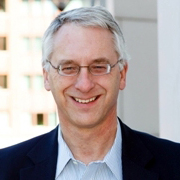
Joseph Kvedar
2012
Joseph C. Kvedar, MD, Founder and Director of the Center for Connected Health, Partners HealthCare is creating a new model of healthcare delivery, developing innovative strategies to move care from the hospital or doctor’s office into the day-to-day lives of patients. Dr. Kvedar is leveraging information technology of“ cell phones, computers, networked devices and remote health monitoring tools to improve care delivery. Based on the technology platform developed at the Center, Healthrageous, a personalized health technology company, was launched in 2010, creating a range of health and wellness self-management programs. He is a Co-Founder and Chair of the company™s Scientific Advisory Board. Dr. Kvedar established the first physician-to-physician on-line consultation service in an academic setting, linking patients from around the world with specialists at Harvard-affiliated teaching hospitals. He is internationally recognized for his leadership and vision in the field of connected health, and has authored over 90 publications on the subject. Dr. Kvedar serves as a Board member for a number of organizations, including Care Continuum Alliance. He serves as a strategic advisor at West Health Institute, and is a mentor at Blueprint Health and Rock Health, providing guidance and insight to developing companies.
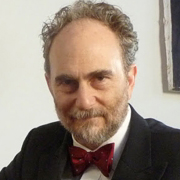
Craig Feied
2011
Dr. Feied is Chief Health Strategy Officer for Microsoft and Professor of Emergency Medicine at Georgetown University. He is a Diplomat of the American Board of Emergency Medicine and fellow of the American College of Emergency Physicians, the American Academy of Emergency Medicine, and the American College of Phlebology. He holds MD degree from the University of California in San Diego. He was a Founding Director of the ER One Institutes for Innovation in Medicine. Dr. Feied has directed more than a hundred health information technology projects including the creation of a unique practical software architecture Azyxxi for real-time integration, organization, presentation, and analysis of all data of all types . It was acquired by Microsoft Corporation in 2006 as the basis for a new Health Solutions Group, and is commercially available under the name “Amalga.” Dr. Feied is committed to the improvement of medical practice through the application of medical informatics to impel increased innovation in medicine. From my own experience I can tell that he deeply cares about maximizing human potential for happy lives and expanding continuum of health to beauty, happiness and general wellbeing. He also dares to aim at errorless healthcare not only reducing medical errors but eliminating their systemic causes. Recent chapter in Strategy for the Future of Health IOS Press 2009, C. Feied et al, “Indistinguishable From Magic: Health and Wellness in a Future of Sufficiently Advanced Technology”.
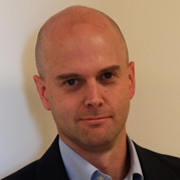
Ben Miller
2010
Benjamin L. Miller is a Professor of Dermatology, Biochemistry and Biophysics, and Biomedical Engineering at the University of Rochester, where he also co-directs the Innovative Science Program in Biomedical Nanotechnology. Raised in southwestern Ohio, Ben carried out his undergraduate studies at Miami University, receiving degrees in Chemistry (B.S.), Mathematics (A.B.), and German (A.B.) in 1988. After acquiring a Ph. D. in Chemistry from Stanford University and carrying out postdoctoral research at Harvard University, Ben joined the faculty of the University of Rochester in 1996. Research in his group has included projects directed towards methods of non-biopolymeric molecular evolution, molecular recognition, computer-aided molecular design, synthetic methodology, and materials science. Most recently, Ben has focused on using his group’s expertise in molecular recognition chemistry, nano-technology, and chip-based bio-molecular sensing systems to aid in the development of novel bio-sensors and rapid diagnostic tools, as well as continuing to attack the problem of sequence-selective RNA recognition. He is an active entrepreneur, and is a founder of Adarza Biosystems, Inc., a Rochester area biomedical start-up company.
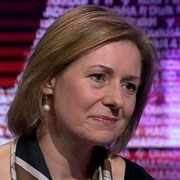
Rosalind Picard
2009
Professor Rosalind W. Picard, Sc.D. is founder and director of the Affective Computing Research Group at the Massachusetts Institute of Technology (MIT) Media Laboratory, co-director of the Things That Think Consortium, the largest industrial sponsorship organization at the lab, and leader of the new and growing Autism Communication Technology Initiative at MIT. In April 2009 she co-founded Affectiva with Dr. Rana el Kaliouby, to commercialize technologies for emotion measurement and communication. Dr. Picard has served on dozens of international and national science and engineering program committees, editorial boards, and review panels, including (most recently) the Advisory Committee for the National Science Foundation’s (NSF’s) division of Computers in Science and Engineering (CISE), the Advisory Board for the Georgia Tech College of Computing, and the Editorial Board of User Modeling and User-Adapted Interaction: The Journal of Personalization Research
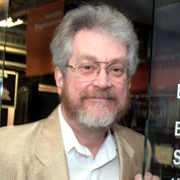
Sandy Pentland
2008
Alex (Sandy) Pentland has been accepted to the US National Academies in 2015. He directs MIT’s Human Dynamics Laboratory, the MIT Media Lab Entrepreneurship Program and co-leads the World Economic Forum Big Data and Personal Data initiatives. Professor Pentland is a founding member of the Advisory Boards for Nissan, Motorola Mobility, and a variety of start-up firms. He has helped create and direct MIT’s Media Laboratory, the Media Lab Asia laboratories at the Indian Institutes of Technology, and Strong Hospital’s Center for Future Health. In 2011 he received Future of Health Technology Award. In 2012 Forbes named Sandy one of the `seven most powerful data scientists in the world’, along with Google founders and the CTO of the United States. In 2013 he won the McKinsey Award from Harvard Business Review. His research interests include wearable computing, human-machine interfaces, computer graphics, artificial intelligence, and machine and human vision. Pentland is a cofounder of the IEEE Computer Society’s Technical Committee on Wearable Information System and the IEEE NNS Autonomous Mental Development Technical Committee. He received a PhD from MIT.
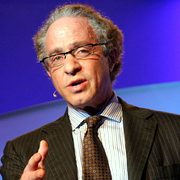
Raymond Kurzweil
2007
Ray Kurzweil has been described as the “restless genius” by the Wall Street Journal, and “the ultimate thinking machine” by Forbes. Inc. magazine ranked him #8 among entrepreneurs in the United States, calling him the “rightful heir to Thomas Edison,” and PBS included Ray as one of 16 revolutionaries who made America, along with other inventors of the past two centuries. As one of the leading inventors of our time, Ray was the principal developer of the first CCD flatbed scanner, the first omni-font optical character recognition, the first print-to-speech reading machine for the blind, the first text-to-speech synthesizer, the first music synthesizer capable of recreating the grand piano and other orchestral instruments, and the first commercially marketed large-vocabulary speech recognition. Ray’s web site Kurzweil AI.net www.kurzweilai.net has over one million readers. Among Ray’s many honors, he is the recipient of the $500,000 MIT-Lemelson Prize, the world’s largest for innovation. In 1999, he received the National Medal of Technology, the nation’s highest honor in technology, from President Clinton in a White House ceremony. And in 2002, he was inducted into the National Inventor’s Hall of Fame , established by the US Patent Office. He has received thirteen honorary Doctorates and honors from three U.S. presidents. Ray has written five books, four of which have been national best sellers. The Age of Spiritual Machines has been translated into 9 languages and was the #1 best selling book on Amazon in science. Ray’s latest book, The Singularity is Near, was a New York Times best seller, and has been the #1 book on Amazon in both science and philosophy.
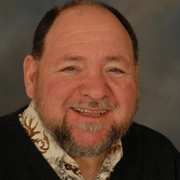
Gary Kreps
2006
Gary L. Kreps (Ph.D. in Communication, 1979, University of Southern California) is Chief of the Health Communication and Informatics Research Branch of the National Cancer Institute’s Behavioral Research Program, Division of Cancer Control and Population Sciences. In this position he plans, develops, and coordinates major new national research and outreach initiatives concerning risk communication, health promotion, behavior change, technology development, and information dissemination to promote cancer prevention and control. Dr. Kreps has published more than 20 books and 130 scholarly articles and chapters examining the important roles performed by communication in society.

Kevin Warwick
2000
Dr. Kevin Warwick is the first Cyborg and Professor of Cybernetics at the University of Reading, UK where he carries out research in artificial intelligence, control and robotics. His favourite topic is pushing back the frontiers of machine intelligence. Kevin began his career by joining British Telecom. At age 22 he took his first degree at Aston University followed by a PhD and research post at Imperial College, London. He subsequently held positions at Oxford, Newcastle and Warwick Universities before being offered the Chair at Reading, at the age of 32. Kevin has published over 350 research papers and his paperback “In the Mind of the Machine” gives a warning of a future in which machines are more intelligent than humans. He has been awarded higher doctorates both by Imperial College and the Czech Academy of Sciences. He has been described by Gillian Anderson of the X-Files as Britain’s leading prophet of the robot age. He appears in the 1999 Guinness Book of Records for an Internet robot learning experiment. In 1998 he had a silicon chip transponder surgically implanted in his left arm and then performed series of further implant experiments linking Kevin’s nervous system to a computer. This research led to him being featured in February 2000, as the cover story on the US magazine “Wired”. He received the Future Health Technology Award in the year 2000.
